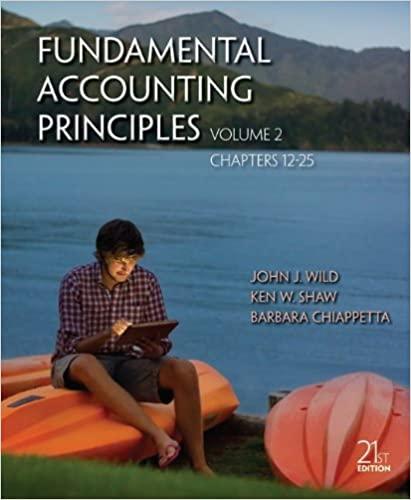Question
1) One reason that an entity is allowed to change its accounting policy is when A. It is required by an accounting standard. B. It
1) One reason that an entity is allowed to change its accounting policy is when
A. It is required by an accounting standard.
B. It is required by law.
C. It is ordered by management.
D. All of these would allow an entity to change an accounting policy.
2) Which of the following is not a retrospective-type accounting change?
A. Cost recovery method to the percentage of completion method for construction contracts.
B. Weighted average to FIFO for inventory valuation.
C. Full cost method to successful effort method in the extractive industry.
D. Percent of sales method to aging method in recognizing doubtful accounts.
3) Changes in accounting policy are
A. Permitted if the change will result in a more reliable and more relevant presentation of the financial
statements.
B. Permitted if the entity encounters new transactions, events or conditions that are substantively different
from existing or previous transactions.
C. Required for all material transactions.
D. Required if an alternate accounting policy gives rise to a material change in assets, liabilities or the
current year net income.
4) An entity changed from cash basis to accrual basis during the current year. The cumulative effect of this
change should be reported in the current year financial statements as
A. Prior period adjustment resulting from correction of an error
B. Prior period adjustment resulting from change in accounting policy
C. Component of income from continuing operations
D. Component of income before extraordinary item
Step by Step Solution
There are 3 Steps involved in it
Step: 1

Get Instant Access to Expert-Tailored Solutions
See step-by-step solutions with expert insights and AI powered tools for academic success
Step: 2

Step: 3

Ace Your Homework with AI
Get the answers you need in no time with our AI-driven, step-by-step assistance
Get Started


